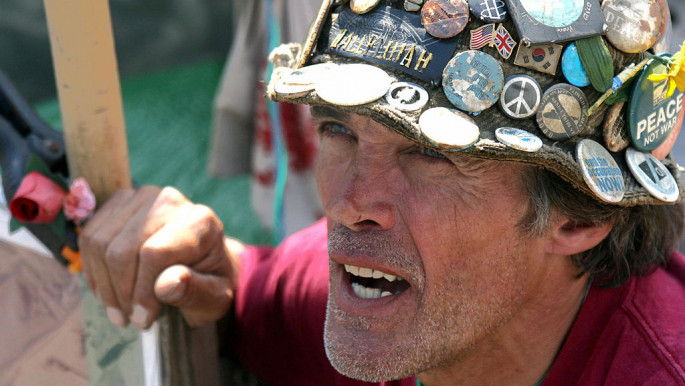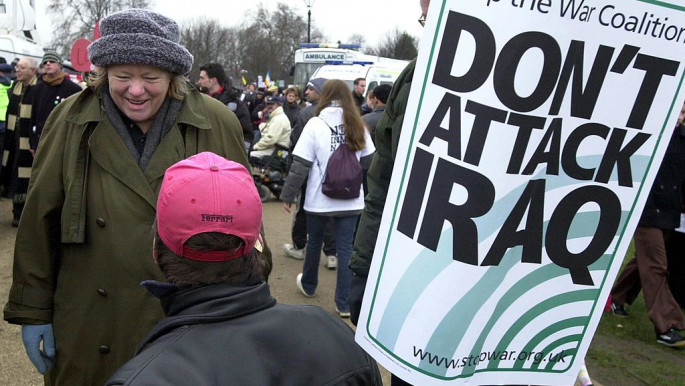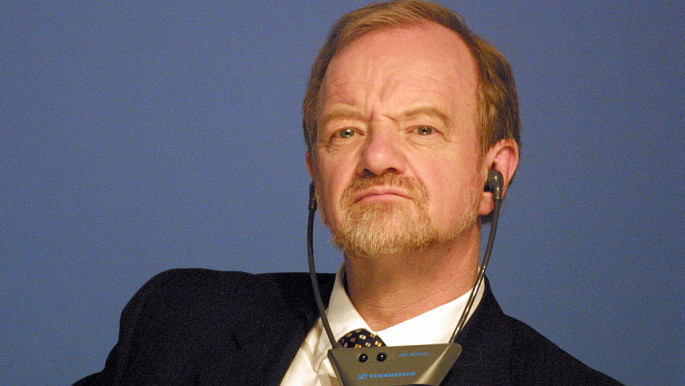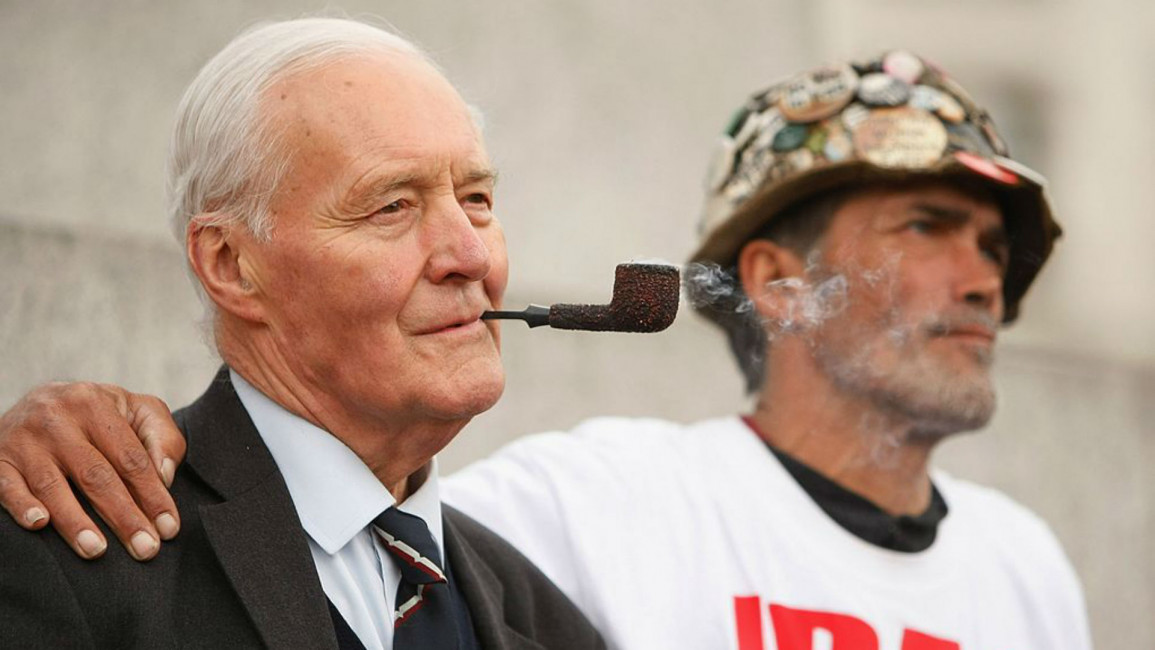
The British anti-war heroes who'll never see Chilcot's report
Britain's cities trembled with the footsteps of the millions who converged on their streets to oppose the war, who would make history with the country's biggest ever public demonstration.
Nonetheless, despite strong expressions of outrage by MPs and the public, British lawmakers voted in favour of war, setting the country on a course that has had huge reverberations more than 13 years later.
After the release of the Chilcot report on Wednesday, many who opposed the 2003 intervention felt vindicated for their stance. More than a decade after the war, there are many others who took this stance, but did not live to see the release of the Chilcot Inquiry's findings this week.
Here's a look at four prominent figures who stood against war in 2003 but passed many years before Wednesday's "devestating" revelations.
1. Tony Benn - Labour's stalwart anti-war campaigner
| Tony Benn was a staunch advocate of nuclear disarmament and Palestinian rights [Getty] |
Described as a man "committed to peace" by Labour Party Shadow Chancellor John McDonnell, Benn was a giant of leftwing British politics and a longstanding opponent of foreign military intervention.
As a member of parliament from 1950 to 2001, the stalwart Labour MP tirelessly campaigned against the Iraq War at the age of 77, attending protests, speaking in public and even travelling to Baghdad for a meeting with Saddam Hussein in a last-ditch effort to avert conflict.
"Tony Benn was one of the most important figures in the anti-war movement who you could rely on to take a principled position against the serial interventions of our government. He was a tireless campaigner and would come out at a moment's notice to any protest, any demonstration, any picket that you asked him to, even in his later years," says Chris Nineham, a founding member of the Stop The War Coalition, a group who Benn was president of.
"On one particular occasion, the police were trying to ban us from protesting in Whitehall and Tony Benn volunteered to head up the demonstration, even though police said that they would not let him through... He did that and the police were not in a position to stop him. He marched right at the front of the demonstration and he was prepared to confront them. That kind of leadership was something that was very important for the anti-war movement."
Tony Benn died in 2014, after having served 47 years in parliament and 13 years as Stop the War Coalition's president.
2. Brian Haw - the one man peace protest
 |
| Brian Haw camped outside Parliament for almost 10 years [AFP] |
On June 2, 2001, Christian peace campaigner Brian Haw set up camp outside Britain's Parliament in Westminster to demand an end to the collective punishment of Iraqi civilians who were suffering as a result of sanctions.
Inspired by the Mariam appeal - a campaign named after Iraqi child Mariam Hamza who was flown to Britain for medical treatment - the father of seven spent ten years on his patch opposite the UK's seat of power, defying police, political opposition, mice and even the harsher turns of unpredictable British weather.
Asked about the mice that scuttle around Parliament Square in the early morning, Haw said in 2002 "I don't mind them," adding that, "it's the rats over there on the other side we have to look out for," pointing a finger towards parliament.
In April 2002 Westminster City Council initiated legal action to remove Haw from his protest that some objected to as an "eyesore". Although the case never went to court, his use of a megaphone was then limited to certain hours.
In another attempt to clamp down on the peace protester, MPs passed legislation in 2005 that banned unauthorised protests within a square mile of Parliament.
Initially, Haw's protest was ruled to be outside the Act because he had initiated it prior to the date of its execution.
Determined to face off Haw's firm resolve, however, the Court of Appeal ruled in 2006 that he would require police permission to continue his protest. This resulted in Haw's protest area being limited to an area 3m wide by 1m deep and 3m high. Police then attempted to seize his placards and accused him of breeching the limits of his protest site and leaving it open to terrorists.
Haw died in 2011 after a long battle with lung cancer, ending almost ten years of continuous protest for peace.
3. Mo Mowlam - The peace broker
 |
| Mo Mowlam at the UK's biggest ever public demonstration, February 15 2003 [Getty] |
Marjorie Mowlam, better known as Mo Mowalm, was a Britsh Labour Party MP who is perhaps best known for having achieved a historic breakthrough in the Northern Ireland Peace Process with the Good Friday Agreement.
Despite having retired in 2001, Mowlam continued actively campaigning for peace and became a prominent critic of British foreign policy under Tony Blair.
In an article for the Guardian in 2002, the former Northern Ireland Secretary questioned the justifications for war that were being touted by George W. Bush and Tony Blair, and accused the duo of using it as a distraction to secure oil.
"This whole affair has nothing to do with a threat from Iraq - there isn't one. It has nothing to do with the war against terrorism or with morality. Saddam Hussein is obviously an evil man, but when we were selling arms to him to keep the Iranians in check he was the same evil man he is today," Mowlam wrote.
"He was a pawn then and is a pawn now. In the same way he served western interests then, he is now the distraction for the sleight of hand to protect the west's supply of oil."
Mowlam died in 2005 after battling with a brain tumor.
4. Robin Cook - Blair's most senior resignation
 |
| Robin Cook served at Foreign Minister from 1997 - 2001 [AFP] |
Another Labour Party politician, Robin Cook served as Foreign Minister under Tony Blair from 1997- 2001.
While Cook had backed British intervention in Sierra Leone, Kosovo and Afghanistan, when it came to Iraq the MP for Livingston became Tony Blair's most senior cabinet member to resign from his post over the war.
As Leader of the House in 2003, delivered a moving speech to parliament in announcing his resignation - one that was mentioned by current Labour leader Jeremy Corbyn in his recent apology on behalf of his party for the Iraq War.
Cook objected to the war on the basis of the lack of evidence of weapons of mass destruction, saying that Britain was being ushered into war without the proper backing of the international bodies that it was signed up to.
"I cannot support a war without international agreement or domestic support," Cook told the House of Commons on March 17, 2003.
"None of us can predict the death toll of civilians from the forthcoming bombardment of Iraq, but the US warning of a bombing campaign that will 'shock and awe' makes it likely that casualties will be numbered at least in the thousands."
While holidaying in Scotland in 2005, Robin Cook suffered a heart attack and tumbled over two meters down a ridge. Cook was later pronounced dead before he could arrive at a hospital.



